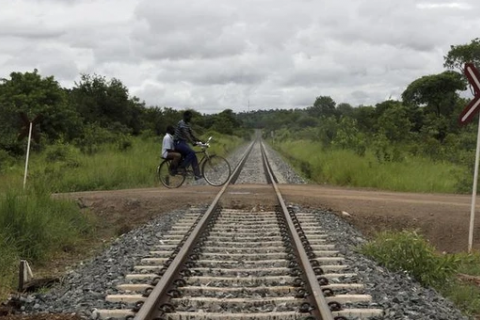In the "Angola Insurance Outlook" study, which presents the main results of the insurance sector between 2019 and 2022 presented this Tuesday, in Luanda, by Ernest Young (EY) Angola, it is stated that the gross premiums acquired in 2022 were 300.3 billion kwanzas compared to 263 billion kwanzas in 2021.
The structure of the non-life premium portfolio "changed significantly" in the period under review, with a weight of 92 percent. Accident, illness and travel insurance accounts for the largest share of total production every year, representing more than half of total production every year, the study notes.
The agricultural insurance component in Angola is also developed in this EY research.
The Angolan banking and insurance market presents a feeling of "uncertainty and reluctance" in insuring the risks inherent to agricultural insurance, despite the vital importance of agriculture for the Portuguese-speaking country, he says.
Despite the importance of agriculture, agricultural insurance "still has little relevance, operating on a co-insurance model without compensation funds", he adds.
"There is still a feeling of uncertainty and reluctance in the banking and insurance market to insure the risks inherent to this sector of activity", reads the study presented during the Insurance Conference, promoted by EY in partnership with the Angolan Insurance Agency. Insurance Regulation and Supervision (ARSEG).
The Angolan Government and the International Finance Corporation (IFC), an arm of the World Bank, signed, in July 2023, a partnership agreement for a project to develop agricultural insurance in the country, an instrument whose direct beneficiary is ARSEG.
ARSEG, in light of the agreement, has the mission of mobilizing the insurance market to create legal, institutional, technical and operational conditions for the operationalization of agricultural insurance in the country.
For EY, in the perspectives outlined in the study, the agreement between Angola and the IFC "will be a boost" for the country to follow the example of other African regions such as Kenya, Zambia and Senegal.
The consultant considers that the expansion in the offer of agricultural insurance will enhance the improvement of the agricultural sector in Angola in several areas, namely stimulating private investment and in sustainable agricultural technology and practices, protection against natural climate risks, reducing risks for investors in the agricultural sector and others.
The study, which also presents the main results of the sector between 2019 and 2022, states that the structure of the Angolan insurance sector was made up of 24 companies, one of which is wholly owned by the State, the National Insurance Company of Angola (ENSA), and the remaining private capital.
Also noteworthy is the "considerable" increase in insurance intermediaries, which increased from 1088 in 2019 to 1456 in 2022.
"The increase in the number of mediators, both collective and individual, demonstrates a trend, which has been increasing, for insurance companies to reduce their own agencies and increase the capillarity of their network through mediation channels", he adds. if in the document.







